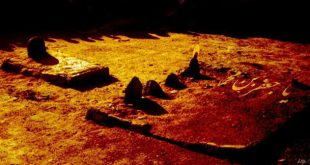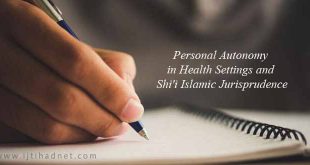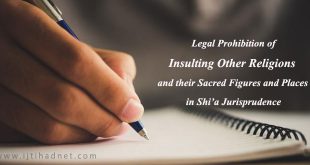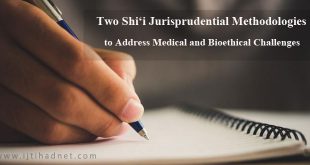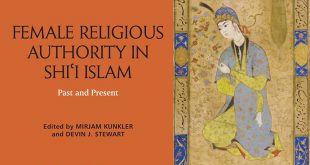The purpose of this study is to cover the meaning and role of the Qur'an in Shiite jurisprudence. Therefore, to achieve this purpose, the history of the compilation of the...
Read More »Brain Death;Dead or not Dead??
Religiously, death occurs when the soul departs from the body. If one acts righteously and adheres to his religious obligations his soul will be removed gently from his body, but if one fails to do so his soul will be...
Read More »Alignment of Science and Religion in Shia Jurisprudence
Shia jurists have always paid special attention to scientific data when issuing ‘fiqh’ rules and there has never been a conflict between science and religion in Shi’ism as there has been in Christianity....
Read More »A Brief History of Imam Jafar al-Sadiq, the Founder of Fiqh al-Jafariya
One of the well-known Muslim schools of thought, also known as the 12er Shia school of thought, is the Jafari school of thought. The word ‘Jafar’ in ‘Jafari’ refers to the sixth blessed Imam of the Prophet’s family (AhlulBayt), peace be upon all of them. The martyrdom of...
Read More »Personal Autonomy in Health Settings and Shi’i Islamic Jurisprudence
The rationale of this paper has been to high-light the conflict between the patients’ right to personalautonomy and medical and social...
Read More »Prohibition of Insulting Others Religions in Shia Jurisprudence
Insulting or disrespecting other religions and their sacred figures and places is a broad and significant subject in Shi‘a jurisprudence. The question often arises as to whether insulting sanctities is legally prohibited or...
Read More »Two Shi‘i Jurisprudential Methodologies to Address Medical and Bioethical Challenges
The legal-ethical dynamism in Islamic law which allows it to respond to the challenges of modernity is said to reside in the institution of ijtihād (independent legal thinking and hermeneutics). However, jurists like Mohsen Kadivar and Ayatollah Faḍlalla have argued that the “traditional ijtihād” paradigm has reached its limits of …
Read More »Al-Shahāda al-Thālitha in Shia Jurisprudence
It is famously held that the Third Testimony (Al-Shahāda al-Thālitha) entered the Shiite adhan since the Safavid era. However, there is evidence that it was recited in adhans prior to this era in different regions. For example...
Read More »Predicting the Jumada al-Awwal Crescent according to Shiʻa Marjas’ Fatwas
Certain factors are at play for sighting the crescent on the first night of the month. These factors include “the time when the sun and the moon sets”, “the interval between the setting of the two”, “the coordinates of the sun and...
Read More »Book: Female Religious Authority in Shi’i Islam, Past and Present
This collection of case studies, covering the period from classical Islam to the present, and taken from across the Shiʿi Islamic world, reflects on the roles that women have played in exercising religious authority across time and...
Read More » Ijtihad Network Being Wise and Faithful Muslim in the Contemporary World
Ijtihad Network Being Wise and Faithful Muslim in the Contemporary World



